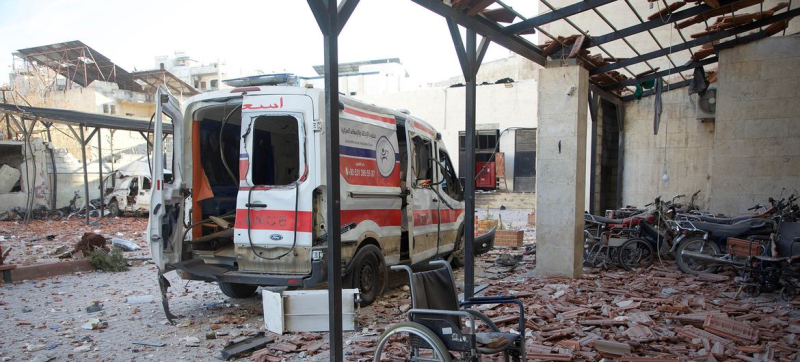- Japan Issues Tsunami Alert After Strong 7.6 Quake |
- Bangladesh Plans Record Flag-Parachute Display on Victory Day |
- UN Launches $33 Billion Appeal to Aid 135 Million People |
- CA urges united efforts to stop food contamination voicing concern |
- Tarique obliquely slams Jamaat for ‘propaganda’ against BNP echoing AL |
UN Warns of Possible War Crimes in Syria’s Alawite Areas

Hostilities in northwestern Syria have caused widespread destruction.
Top UN human rights investigators said on Thursday that war crimes may have been committed in predominantly Alawite areas of Syria during a wave of deadly violence earlier this year.
Many of the victims were Alawite, a minority community in Syria to which the former ruling Assad family belonged. Some community members are believed to have been killed in March by forces or individuals loyal to the country’s new leadership, the National Transitional Authority, headed by interim President Ahmed Al-Sharaa.
In response to the “arrest operation” launched on 6 March, fighters loyal to toppled President Bashar al-Assad retaliated by capturing, killing, and injuring hundreds of interim government forces, the commissioners said.
Looting was widespread, and homes were set alight, leaving tens of thousands of civilians displaced, the commissioners added.
In total, approximately 1,400 people were reported killed in the ensuing massacres, predominantly civilians.
“The vast majority were adult men, but victims included approximately 100 women, the elderly, the disabled, and children,” the UN Commission of Inquiry on Syria said.
The Commission also warned that the Alawite community, which formed Mr. al-Assad’s power base, is still being targeted. Alawites make up about 10 per cent of the majority-Sunni country.
According to the commissioners’ latest report, victims killed in March were murdered and tortured, and the bodies of the dead were mutilated. Some acts were filmed and posted on social media, along with footage of civilians being abused and humiliated.
Paulo Pinheiro, Chair of the UN panel, condemned the scale and brutality of the violence, which reportedly involved Alawite men being identified, singled out, and then executed in multiple majority-Alawite villages and neighbourhoods.
“Bodies were left in the streets for days, with families prevented from conducting burials in accordance with religious rites, while others were buried in mass graves without proper documentation,” the commissioners’ report stated.
Meanwhile, hospitals became overwhelmed “as corpses piled up”.
The Commission’s latest report is based on extensive investigations, including more than 200 interviews with victims and witnesses, including in Latakia and Tartus.
The investigators also visited three mass grave sites and met senior Syrian government officials.
Today, Alawite communities still live in fear and face ongoing abductions of women, arbitrary arrests, enforced disappearances, and the looting and occupation of their property, the investigators noted.
The communities should be protected by the new authorities in charge of Syria, the commissioners insisted.
“The affected communities need urgent action to increase their protection. Beyond referral of suspected perpetrators to criminal justice, individuals suspected of involvement in violations during the March events should be immediately removed from active duties pending investigation,” said Commissioner Lynn Welchman.
Additionally, screening processes need to be expanded so that known or suspected
perpetrators of past grave violations are not recruited into the interim government security forces, she maintained.After 14 years of civil war, which ended last December when opposition forces, including Hayat Tahrir al-Sham (HTS) led by interim President al-Sharaa, swept into Damascus and forced out Mr. al-Assad, lasting damage has been done to Syria’s unity.
“The extreme violence that occurred has deepened existing rifts between communities, contributing to a climate of fear and insecurity among many Syrians throughout the country,” the commissioners said.
“We call on the interim authorities to continue to pursue accountability for all perpetrators, regardless of affiliation or rank,” Mr. Pinheiro added. “While dozens of alleged perpetrators of violations have reportedly been arrested, the scale of the violence documented in our report warrants expanding such efforts.”

